第69章 II(2)
Spacious, built of granite in the Scotch baronial style, with a tower 100 feet high, and minor turrets and castellated gables, the castle was skilfully arranged to command the finest views of the surrounding mountains and of the neighbouring river Dee. Upon the interior decorations Albert and Victoria lavished all their care. The wall and the floors were of pitch-pine, and covered with specially manufactured tartars. The Balmoral tartan, in red and grey, designed by the Prince, and the Victoria tartan, with a white stripe, designed by the Queen, were to be seen in every room: there were tartan curtains, and tartan chair-covers, and even tartan linoleums. Occasionally the Royal Stuart tartan appeared, for Her Majesty always maintained that she was an ardent Jacobite. Water-colour sketches by Victoria hung upon the walls, together with innumerable stags' antlers, and the head of a boar, which had been shot by Albert in Germany. In an alcove in the hall, stood a life-sized statue of Albert in Highland dress.
Victoria declared that it was perfection. "Every year," she wrote, "my heart becomes more fixed in this dear paradise, and so much more so now, that ALL has become my dear Albert's own creation, own work, own building, own lay-out... and his great taste, and the impress of his dear hand, have been stamped everywhere."
And here, in very truth, her happiest days were passed. In after years, when she looked back upon them, a kind of glory, a radiance as of an unearthly holiness, seemed to glow about these golden hours. Each hallowed moment stood out clear, beautiful, eternally significant. For, at the time, every experience there, sentimental, or grave, or trivial, had come upon her with a peculiar vividness, like a flashing of marvellous lights. Albert's stalkings--an evening walk when she lost her way--Vicky sitting down on a wasps' nest--a torchlight dance--with what intensity such things, and ten thousand like them, impressed themselves upon her eager consciousness! And how she flew to her journal to note them down! The news of the Duke's death! What a moment--when, as she sat sketching after a picnic by a loch in the lonely hills, Lord Derby's letter had been brought to her, and she had learnt that "ENGLAND'S, or rather BRITAIN'S pride, her glory, her hero, the greatest man she had ever produced, was no morel." For such were here reflections upon the "old rebel" of former days. But that past had been utterly obliterated--no faintest memory of it remained. For years she had looked up to the Duke as a figure almost superhuman. Had he not been a supporter of good Sir Robert? Had he not asked Albert to succeed him as commander-in-chief? And what a proud moment it had been when he stood as sponsor to her son Arthur, who was born on his eighty-first birthday! So now she filled a whole page of her diary with panegyrical regrets. "His position was the highest a subject ever had--above party--looked up to by all--revered by the whole nation--the friend of the Sovereign... The Crown never possessed--and I fear never WILL--so DEVOTED, loyal, and faithful a subject, so staunch a supporter! To US his loss is IRREPARABLE... To Albert he showed the greatest kindness and the utmost confidence... Not an eye will be dry in the whole country." These were serious thoughts; but they were soon succeeded by others hardly less moving--by events as impossible to forget--by Mr. MacLeod's sermon on Nicodemus--by the gift of a red flannel petticoat to Mrs. P. Farquharson, and another to old Kitty Kear.
But, without doubt, most memorable, most delightful of all were the expeditions--the rare, exciting expeditions up distant mountains, across broad rivers, through strange country, and lasting several days. With only two gillies--Grant and Brown--for servants, and with assumed names. It was more like something in a story than real life. "We had decided to call ourselves LORD AND LADY CHURCHILL AND AND PARTY--Lady Churchill passing as MISS SPENCER and General Grey as DR. GREY! Brown once forgot this and called me 'Your Majesty' as I was getting into the carriage, and Grant on the box once called Albert 'Your Royal Highness,' which set us off laughing, but no one observed it." Strong, vigorous, enthusiastic, bringing, so it seemed, good fortune with her--the Highlanders declared she had "a lucky foot"--she relished everything--the scrambles and the views and the contretemps and the rough inns with their coarse fare and Brown and Grant waiting at table. She could have gone on for ever and ever, absolutely happy with Albert beside her and Brown at her pony's head. But the time came for turning homewards, alas! the time came for going back to England. She could hardly bear it; she sat disconsolate in her room and watched the snow falling. The last day! Oh! If only she could be snowed up!